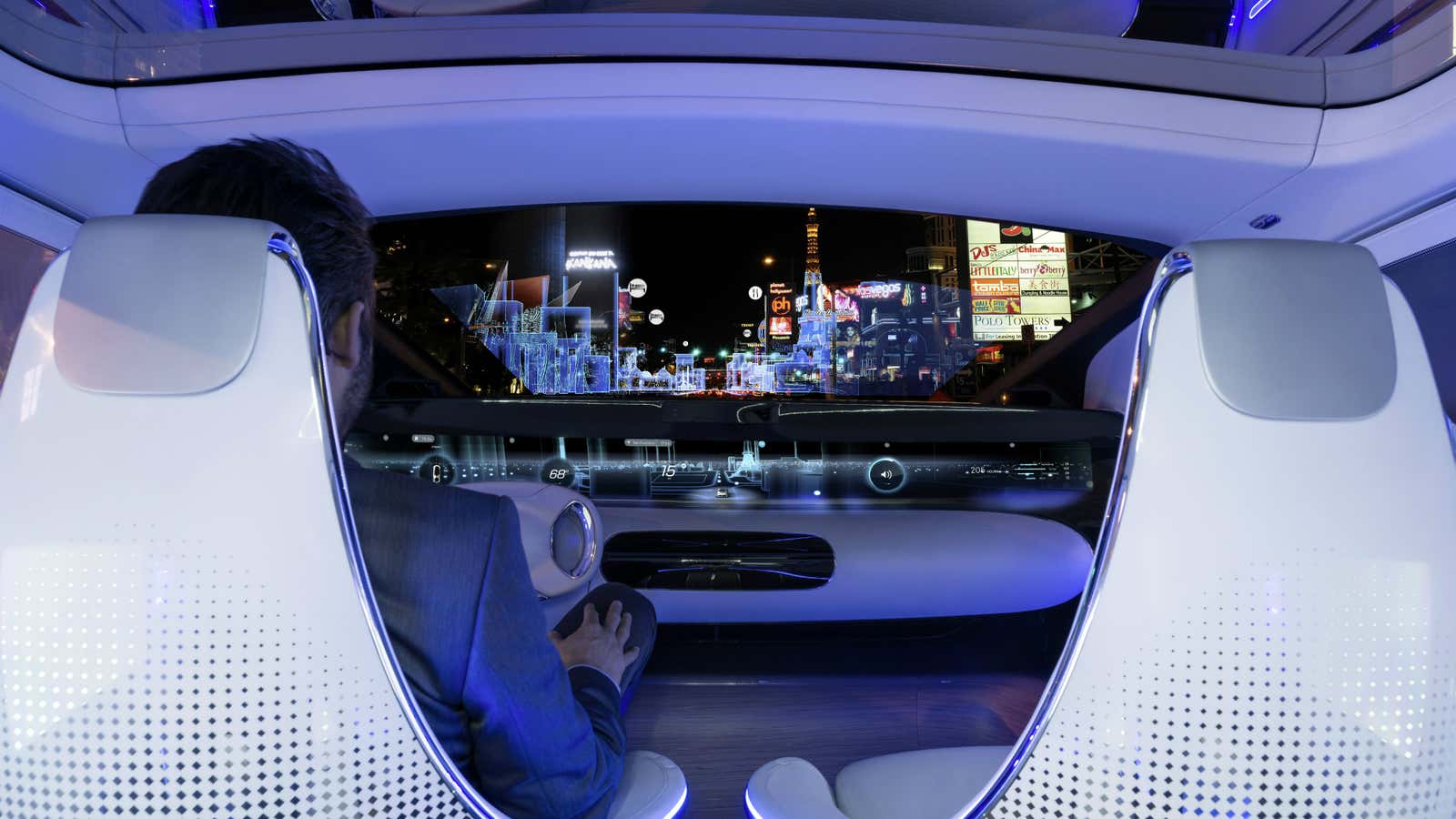Mankind’s rapid march toward a utopian (or dystopian, if you like) future of self-driving vehicles seems inevitable.
And this makes a lot of people nervous. Mainly due to concerns about safety (probably the most high profile autonomous car, being developed by Google, has been involved in a small number of accidents) or just plain uneasiness about humans being replaced by automation in what remains for some a cherished activity.
But there are other, simpler reasons why we should be cautious about self-driving cars: they could make you sick. At least that’s if people end up doing what they say they will do in them. Surveys indicate that while the most common thing people expect to do in self-driving cars is (amusingly) stare at the roads, perhaps due to aforementioned nervousness, most people also think they will be able to do things like watch videos, read, play games, work, text, and browse the internet. For this reason, lots of people already think content companies could be major beneficiaries from the self-driving car revolution.
The problem is that these types of activities are also the types of thing that increase the frequency and severity of motion sickness. A recent study by University of Michigan professor Michael Sivak looks at this very issue.
Humans rarely experience motion sickness while driving. It’s more commonly an ailment for passengers—and is heavily dependent on what the passenger is doing while sitting in the car (reading, watching videos, etc.) Sivak looked at the activities that people say they expect to engage in as passengers in self-driving cars to estimate what proportion of people would be affected by motion sickness in them.
(Data: Michael Sivak, University of Michigan).
Sivak calculates that between 6% to 10% of American passengers in self-driving cars would experience motion sickness often, usually, or always. The percentage is even higher in other countries. In India—where people are more likely than their American counterparts to say they would watch video, text, read, and work while riding in self-driving cars—between 8% and 14% of people will often experience motion sickness, Sivak estimated.
The ability to test his conclusions on a broad scale could be here sooner than you’d think. Analysts at Morgan Stanley expect that self-driving cars will be pervasive within 20 years, and Goldman Sachs forecasts that cars without steering wheels, and that automatically brake, will by fairly commonplace by 2025.
